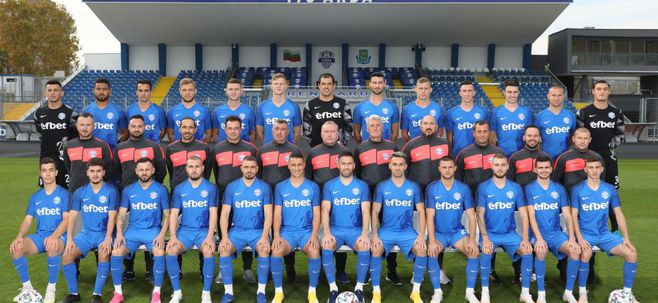
Fritz Walter: The Timeless Legend of German Football
Fritz Walter wasn’t just a footballer—he was the heartbeat of post-war German football. Known for his elegant play and quiet leadership, he led West Germany to a stunning 1954 World Cup win. His legacy goes beyond the pitch, marked by resilience and humility. Even today, his story inspires fans, players, and anyone who understands the beauty of the game. In a time of rebuilding, his triumph became a symbol of hope—one that still echoes through generations. Whether you’re studying legends or checking the latest kèo nhà cái, Fritz Walter remains a name of timeless impact.
Fritz Walter: The 1954 World Cup Champion
The 1954 FIFA World Cup stands out as a pivotal point in both Walter’s career and the history of German football. This championship catalyzed a national revival and marked Walter’s place as a legend.
The Road to the World Cup
Leading up to the tournament, the German national team was considered an underdog. Many doubted their capabilities after World War II had ravaged the country. However, under Walter’s captaincy, they channeled their challenges into a determined mindset.
The group stages highlighted the team’s resilience, setting the stage for a dramatic journey to the final. Walter’s leadership ensured the squad remained united and focused despite the odds stacked against them.
The Memorable Final
The final match against Hungary is etched in football history for its intensity and unpredictability. Walter’s performance was instrumental, as he orchestrated the game, contributing both defensively and offensively.
His deft ball control, precise passing, and ability to inspire teammates were crucial to Germany’s victory. By scoring a goal and assisting others, he not only showcased his skills but also reaffirmed his role as a leader.
Legacy of the Championship
Winning the 1954 World Cup was transformative for Germany, igniting a sense of national pride and hope. Walter emerged not only as a champion on the pitch but as a symbol of resilience and aspiration for a nation eager to rise from the shadows of conflict.
This victory was a catalyst for the development of football culture in Germany and a reminder that unity and resilience could lead to remarkable achievements. Walter’s contribution during this pivotal moment cements his legacy as one of the greatest footballers in history.
Analyzing Fritz Walter’s Playing Style
Fritz Walter‘s style of play was characterized by grace, intelligence, and adaptability, shaping the way the game is perceived in Germany.
Technical Prowess and Skillful Play
Walter was gifted with exceptional ball control and technique. His dribbling skills allowed him to navigate through defenses seamlessly, creating opportunities for himself and his teammates.
He often featured as a playmaker, utilizing precise passing and positioning to advance the ball. His understanding of the game was second to none, allowing him to make split-second decisions that altered the course of matches.
Leadership on the Pitch
As captain, Walter embodied leadership and exemplified accountability. His communication with teammates was effective, instilling confidence and trust within the squad.
During pressure situations, his composed demeanor fostered resilience. He encouraged players to rise to challenges, using his experience and tactical insight to guide the team through difficult moments.
Tactical Adaptability
Walter’s playing style was marked by versatility. He effectively adapted to different tactical formations, which allowed him to flourish in various roles on the pitch—be it as a forward, midfielder, or playmaker.
This adaptability not only elevated his gameplay but also allowed the team to explore different configurations, resulting in a more unpredictable and dynamic attacking style.
Fritz Walter: A Role Model for Future Generations
Fritz Walter‘s life and career continue to serve as an essential guide for aspiring footballers and enthusiasts alike.
Resilience in Adversity
Walter’s journey exemplified the importance of resilience. His triumph over personal and external obstacles inspired countless individuals who sought to achieve their dreams, reminding them that persistence and determination are key to success.
His story encourages young footballers to embrace challenges, highlighting that setbacks can often be the foundation for growth and future achievements.
Leadership and Teamwork Approval
As a captain, Walter’s emphasis on teamwork emphasized the collective nature of success. He taught aspiring players that individual talent must coexist with collaboration for greater achievements.
His commitment to your comrades and respect for others on the pitch resonated deeply within the football community, instilling ideals that continue to inspire generations.
Philanthropic Spirit and Community Involvement
Beyond his exploits on the pitch, Walter’s dedication to giving back to society remains a significant aspect of his legacy. He often involved himself in local charities and educational initiatives, inspiring young players to contribute positively to their communities.
By fostering this altruistic spirit, he encouraged future generations to recognize their responsibility toward the sport and society as a whole, creating a positive impact beyond the football field.
The Life and Times of Fritz Walter
Fritz Walter‘s life encompassed not just football but the broader tapestry of human experience. His values of integrity, passion, and service shaped his legacy.
Personal Life and Interests
Beyond competition, Walter cherished life outside football. His interests included literature and art, reflecting a deep appreciation for culture. Family was also paramount in his life, and he often expressed joy in spending time with loved ones.
Impact on German Society
Walter’s influence extended beyond sports, becoming a national figure during a time of uncertainty. By embracing and uplifting his community, he served as a model for what it means to engage positively in society.
His story serves as a reminder that football can be a vehicle for greater change, touching lives in ways far beyond the pitch.
The Enduring Legacy
Fritz Walter‘s contributions to German football have solidified his place as a sporting icon. His story continues to be celebrated, with a lasting impact felt through new generations of footballers who aspire to emulate his spirit and commitment.
The life of Fritz Walter is celebrated not just in sports history but also across the social fabric of Germany, marking him as a beloved icon and a figure of inspiration forever.
Conclusion
Fritz Walter stands as a monumental figure in German football, whose influence stretched far beyond the pitch. From his early life and career at 1. FC Kaiserslautern to representing Germany at the World Cup, Walter’s resilience and leadership became a symbol of national pride. His playing style, celebrated for its technical brilliance, paved the way for future generations while his legacy as a role model highlighted the importance of teamwork and community. In essence, Fritz Walter‘s life embodies the spirit of football itself—passion, perseverance, and the unyielding pursuit of excellence.



